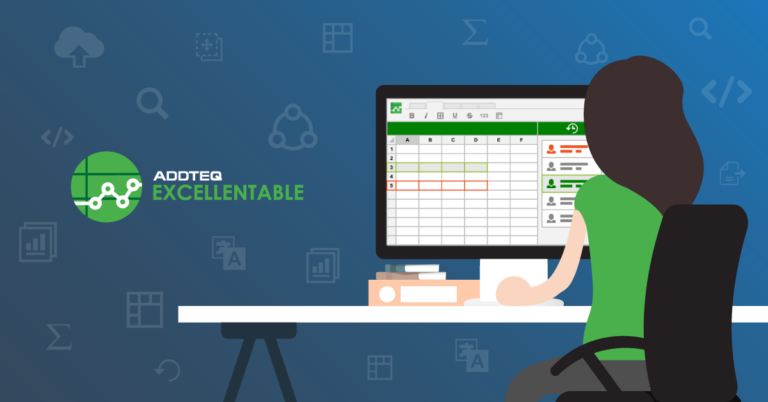
As more companies embrace the flexibility of remote work, the journey from a traditional office environment to a successful virtual workspace can be exciting and challenging. It’s not merely about replacing office furniture with home setups; this transition encompasses a thoughtful process that requires careful planning and consideration of various key elements. At Addteq, I’ve been fortunate to play an instrumental role in navigating Addteq’s remote culture evolution, and I’m eager to share valuable insights that can inspire and guide your transition.
Asset Management Issues
Hardware Assets
One pivotal aspect of remote work is effectively managing physical and digital assets. While managing hardware and software licenses in a conventional office is straightforward, remote work introduces new complexities requiring innovative solutions. It’s essential to ensure that every team member is equipped with the tools they need to be productive, whether laptops, monitors, or even ergonomic office chairs.
How Addteq addressed it: Given our global reach, we embrace a diverse talent pool, which comes with its own set of challenges regarding asset management. We partner with credible vendors who provide brand-new hardware on a rental basis, taking the pressure off us when it comes to asset recovery as employees transition in and out.
Data Security
Protecting data is paramount as employees access sensitive information from various locations. As a SaaS company we have to ensure data security. Utilizing secure networks such as VPNs and encryption protocols is crucial.
How Addteq addressed it: At Addteq, we have strict compliance and standard procedures to ensure that the data is protected. We have decided to to be SOC2 and ISO27001 compliant to ensure our customers’ peace of mind.
Streamlining Software Licenses
Accessing essential software is vital for remote productivity, and leveraging cloud-based solutions has made this a breeze while simplifying license management for employees working from home. We also need to keep the software up to date for
How Addteq addressed it: At Addteq, we prioritize security through Kandji, an innovative device management solution tailored for organizations using Apple devices. This platform allows our IT team to manage, secure, and ensure software compliance across macOS and iOS devices.
Strengthening Cross-Functional Team Management
Fostering collaboration among cross-functional teams can be more challenging without the spontaneous camaraderie of in-person interactions. However, we can cultivate an effective teamwork environment with the right strategies.
Invest in Communication Tools
Like us at Addteq, companies should consider tools like Slack, Zoom, and Microsoft Teams to facilitate seamless collaboration. Integrating these platforms with project management tools helps streamline workflows. We’re proud to offer dedicated Zoom numbers to our team members, ensuring smooth communication internally and with our valued customers.
Establishing Clear Objectives and Deadlines
In a distributed setup, clarity around goals and deliverables becomes crucial. Communicating responsibilities and timelines effectively enables teams to stay aligned and reduces the chances of miscommunication. At Addteq, we utilize JIRA for task management, which keeps everyone on track and even allows external partners to engage through our service desk.
Regular Check-ins to Foster Accountability
Scheduling frequent meetings, stand-ups, and cadence calls can keep teams connected and accountable. It’s essential to design these sessions to be engaging and productive, helping to prevent fatigue while ensuring everyone remains aligned.
Organize Engaging Remote Events
Moving to remote work doesn’t mean we should overlook team events, training sessions, or company-wide gatherings. Virtual engagement can be more critical than ever!
Host Virtual Team-Building Activities
While in-person events are fantastic, don’t underestimate the power of virtual alternatives. Engaging in online games, workshops, and trivia sessions can invigorate team spirit and connection. Regularly scheduled team-building activities at the organizational level and within teams are key to maintaining morale and fostering collaboration.
Implementing Thoughtful Onboarding and Training
A strong onboarding process is essential for new employees to feel welcomed and integrated into the team. Crafting a structured virtual onboarding experience with comprehensive digital materials and consistent video check-ins can ensure newcomers have a smooth and welcoming start.
Breaking the Cycle of Monotony
One noteworthy challenge of remote work is the potential for monotony and isolation, which can impact well-being and productivity. Managers must proactively create a supportive work environment that encourages balance and energy throughout the day.
Promoting Regular Breaks
Encourage your team to take breaks regularly. These moments of respite are vital for recharging and maintaining focus, leading to greater productivity overall.
By thoughtfully considering these factors, you can facilitate a seamless and successful transition from a traditional office environment to an engaging and productive remote work setup. Embracing this change can unlock new levels of flexibility and collaboration, positively impacting both your teams and the organization as a whole. Together, let’s take this exciting journey forward!





